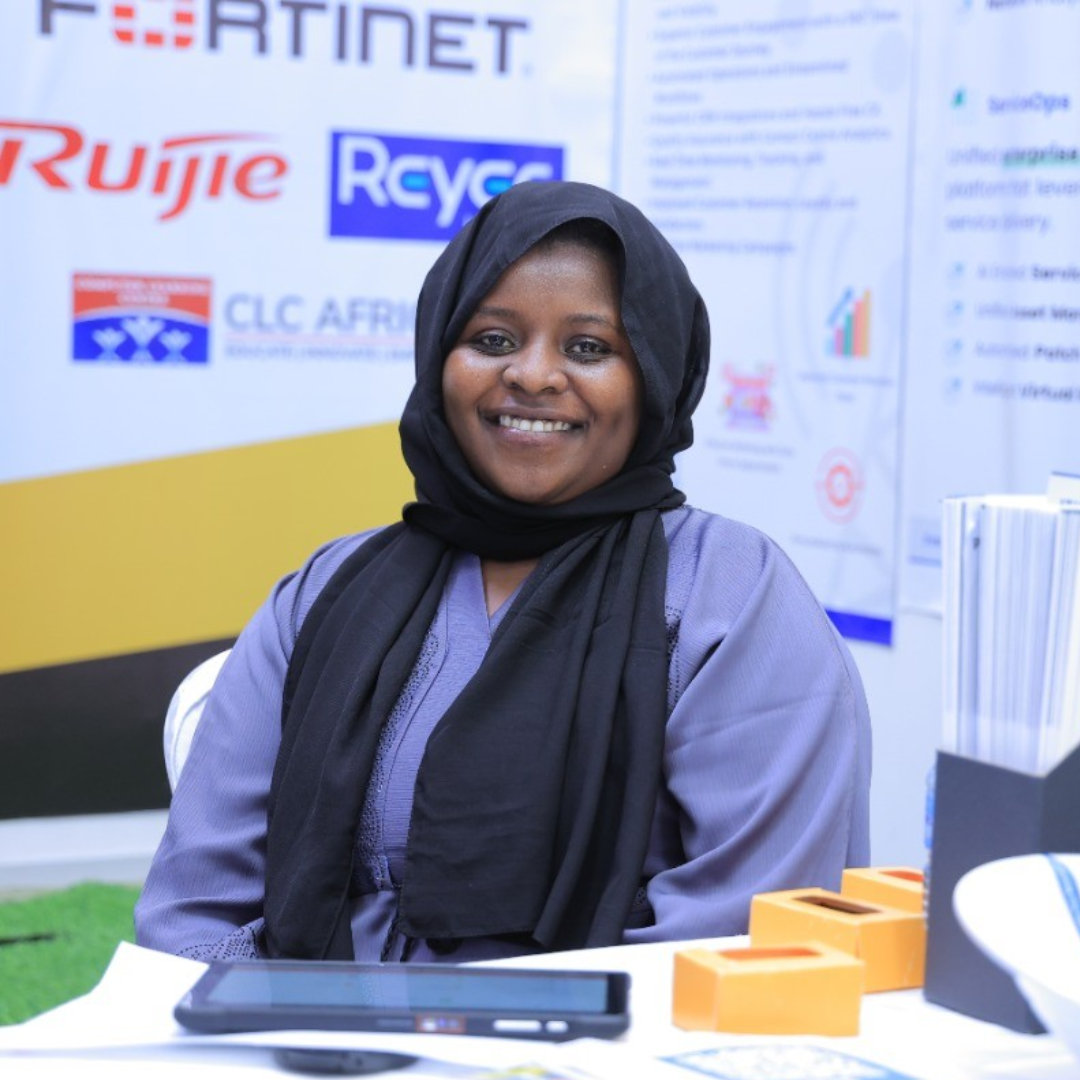Tech Trends from the African Tech Ecosystem (Q2 2025)

Karen Maina
July 19, 2025

Africa's tech ecosystem didn't just stay busy in Q2 2025; it showed signs of real maturity. While global tech markets continued to grapple with rate hikes and cautious capital, the African continent made bold strides: regulators became sharper, investors returned with confidence, and infrastructure scaled faster than many had expected.
This quarter, we dug into 12 weeks of weekly podcast reports, founder chats, and industry updates to map the most significant tech trends on the continent from April through June. Whether you're launching your next startup, investing across markets, or navigating regulation, this is your cheat sheet to Q2’s most critical shifts.
1. Fintech: Cross-Border Playbooks, Regulation Moves, and Stablecoin Infrastructure
Let’s be honest: no sector in Africa evolves faster than fintech, and Q2 proved that again. However, unlike previous quarters, which were all about innovation and expansion, this one had a more serious undertone: compliance.
- PalmPay, after processing 1.35 billion transactions in Q1 alone, announced expansion into four more markets, signalling the growing importance of regional scale.
- Visa and Yellow Card joined forces to roll out stablecoin-based payment rails across multiple African countries.
- Mastercard quietly launched a stablecoin-ready infrastructure enabling crypto wallet-to-checkout transactions.
- On the policy front, Nigeria’s open banking framework has officially launched, opening up APIs across banks — a move that has been four years in the making.
- However, with that came enforcement: Paystack was fined ₦250 million by the Central Bank of Nigeria for “non-compliance issues,” sending a clear message to the sector.
Founder Takeaway:
Regulatory agility is no longer a “nice to have”; it's core infrastructure. Build or adopt tools for crypto compliance, cross-border FX, and smart KYC. And if you're playing in B2B infrastructure fintech (such as APIs for onboarding, payments, or compliance), a hungry market is forming.
2. AI: From Talk to Transformation (With Budgets to Match)
This quarter marked a turning point in African AI, from strategy decks to actual implementation.
- Safaricom announced a $500M AI fund, aiming to transform customer experience and backend processes.
- Cassava Technologies broke ground on Africa’s first NVIDIA-powered “AI factory,” set to develop localised models and edge computing infrastructure.
- Rwanda deployed rural healthcare AI datasets, scaling diagnostic access to under-resourced regions.
- Cameroon and Zambia both unveiled national AI strategies and curriculum frameworks to build local talent.
Founder Takeaway:
The age of “just throw ChatGPT on it” is over. There's massive white space for localised AI products**;** think Swahili or Pidgin NLP tools, AI models trained on agricultural data, or compliance-friendly models for health and finance. Be ready for AI regulations to follow fast, especially in sensitive industries.
3. Cloud Infrastructure & Data Centres: Building Africa’s Digital Backbone
Cloud might not make headlines like AI, but in Q2, infrastructure builders got to work. Africa’s appetite for compute power, storage, and low-latency access is pushing a rapid expansion in data centres.
- MTN Nigeria completed phase one of its $235 million data centre.
- Equinix has committed $140 million to expand its operations in Nigeria.
- Raxio raised $100M from the IFC to build out data centres in underserved markets.
- Starlink and Safaricom each made moves on hyperscale and satellite connectivity infrastructure.
Founder Takeaway:
Your future app will need to be cloud-native, latency-aware, and compliant with data sovereignty laws and regulations. Hosting in-country or with hybrid models isn’t just good ops; it could be required. Expect cloud providers to start offering startup credits; take them.
4. Regulation: The Policy Machine Is Finally Catching Up
Tech in Africa is finally operating in a world where laws exist, are being enforced, and, sometimes, actually make sense.
- Nigeria has a proposal to link borrower histories to NIN, reshaping how digital lenders assess risk.
- Meta’s $220 million fine was upheld in Nigeria, marking one of the most significant wins for consumer data rights on the continent.
- Zimbabwe’s SIM registration policy drew criticism for overreach and surveillance concerns.
- Kenya’s crypto bill is now in effect, focusing on stablecoins and exchange regulation.
- ARCON (Nigeria’s ad regulator) began enforcing its digital ad licensing requirements.
Founder Takeaway:
Compliance used to be optional. Not anymore. If you're in ad-tech, lending, or content, familiarise yourself with sector-specific rules. Hire legal advisors early. DPOs (Data Protection Officers) are now a must-have, even if part-time.
5. Cross-Border Trade & Payments: Interoperability Is Gaining Ground
We’re seeing the first real signs that AfCFTA, the African Continental Free Trade Area, is becoming more than just a buzzword.
- Afreximbank launched a Pan-African payment card, backed by PAPSS, Afrigo, and Verve.
- Nigeria and the UK began a joint cybersecurity and finance regulatory initiative aimed at securing cross-border finance.
- Afreximbank also provided training support for startups to plug into AfCFTA frameworks.
Founder Takeaway:
Cross-border payment protocols like PAPSS are no longer theory. If you're building export-oriented products or services, now is the time to get compliant and integrated. Think multi-currency, low-fee routing, and regional wallets.
6. Startup Funding: Rebounds, Acquisitions, and New Capital
After a slower 2024, startup funding rebounded significantly in Q2 2025.
- Africa crossed the $1 billion funding mark by mid-year, on track to outperform its 2024 performance.
- Moove announced plans for a $300M raise, moving closer to unicorn status.
- Silverbacks exited OmniRetail with a 5x return, a significant confidence boost for African secondaries.
- Stanbic Kenya launched a $100 million fund**,** a rare move for a traditional bank to venture into.
- C-One Ventures acquired Bankly, while Baillie Gifford exited Jumia, signalling sector rotations.
Founder Takeaway:
VCs aren’t the only game in town anymore. Corporate VCs, banks, and secondary buyers are now active players. But with that comes expectations: proper governance, financial hygiene, and realistic growth plans are non-negotiable. Acquisitions are on the rise; even if you're not fundraising, be prepared to discuss exits.
7. Connectivity: Last-Mile Internet and 5G Expansion Get Real
The push to bring the internet to the rest of Africa ramped up this quarter.
- Starlink expanded to Lesotho and Guinea-Bissau**,** partnering with Airtel Africa for a broader reach.
- Mobilis trialled 5G in Algeria, and Ghana’s national 5G deadline is drawing near.
- Sierra Leone launched Africa’s first renewable-powered 5G site.
- Nigeria signed an MoU with China to bring direct-to-device satellite internet.
Founder Takeaway:
If your product relies on connectivity (such as streaming, gaming, or real-time tools), start planning for low-bandwidth, offline-capable versions. Entire new addressable markets are coming online, often outside urban hubs.
8. Startups that Closed in Q2
According to our Startup Graveyard repository, Afristay, a South African startup, closed in June 2025. The company was an online travel agency with over 30,000 listings throughout Africa, including holiday homes, guest houses, villas, and B&B rentals.
The startup struggled with market conditions caused by the COVID-19 pandemic. The pandemic had a profound impact on the travel industry, leading to a decline in bookings and revenue. Afristay was unable to recover and ultimately shut down.
This follows the closure of Medsaf, Bento Africa, Edukoya, as well as Lipa Later, which entered into administration in Q1.
Conclusion: The Maturity of the African Tech Ecosystem
From fintech compliance frameworks to AI factories and billion-dollar data infrastructure, Q2 proved one thing: Africa’s tech ecosystem is maturing. The regulatory guardrails are going up. The capital is returning. Infrastructure is catching up. And the next wave of innovation will need to be both localised and responsible.
Startups that succeed won’t just build fast; they'll make wise decisions.
So, whether you're launching an AI health tool in Kenya, building a B2B payments gateway in Nigeria, or deploying connectivity solutions in Francophone Africa, one thing is clear:
Africa is open for innovation. But this time, there are rules, rails, and real reach.


